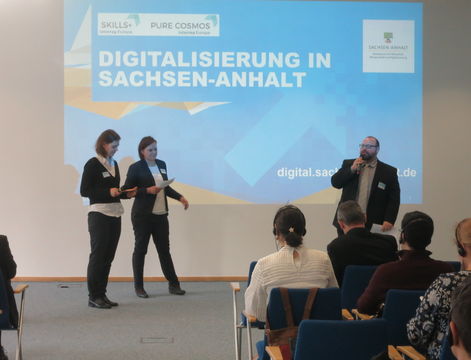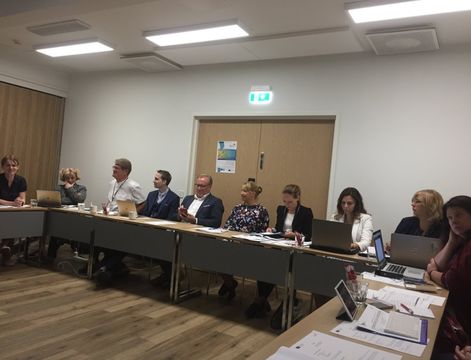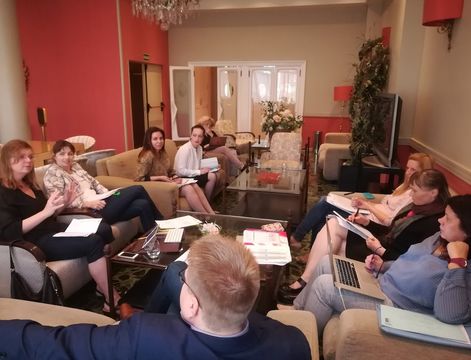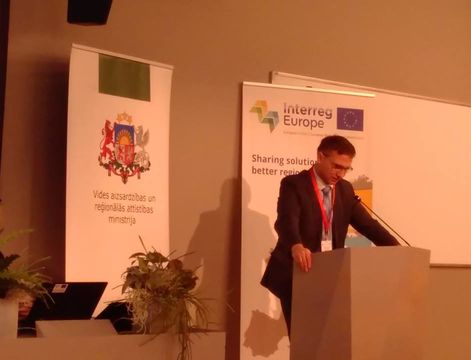On December 2nd, 2020, the final event of SKILLS+ took place. Though planned otherwise the digital finish suited a project, which has been aiming at promoting digitalisation of SME in rural areas, quite well. Between 40 and 50 individuals followed the event, representatives of all partners and the Joint Secreatariat included. Many participants represented stakeholders which engaged in the policy learning activities and/or the action plan implementation in the partner regions.

The event was opened by Saxony-Anhalt's Minister for Regional Development and Transport, Thomas Webel. Other welcoming greetings came from Viktória Krivenkó, Hungarian Ministry of Finance and EDIOP Managing Authority, and Gumersindo Bueno Benito, Junta of Castile and León, General Director of Cultural Heritage. First presentations were enlighting participants about the Interreg Europe programme and the activities carried out by the SKILLS+ project. Its policy-learning impacts were thereafter reviewed by five project partners. All of them agreed that the peer reviews, which involved visits by small delegations of other project partners and involved stakeholders, were the most beneficial activity as the peer reviews provided ample opportunities for in-depth learning and sharing own good practices with a range of institutions of the visited region. The Mayor of Tangerhütte in Saxony-Anhalt, Andreas Brohm, and Andreas Kluge, Head of Association Broadband Altmark, were thereafter reviewing the past year and the changes in the digital environment. They underlined the necessity to continue implementing one of the activities in Saxony-Anhalt's action plan and to take use of the boost digitalisation in general received during the pandemic.
A further discussion round later involved different stakeholder institutions that were engaged in the project's processes, notably the draft, negotiation and implementation of a regional action plan. The participants agreed on the necessity to pursue further action to level the digital skills and infrastructures for small companies in rural areas.









